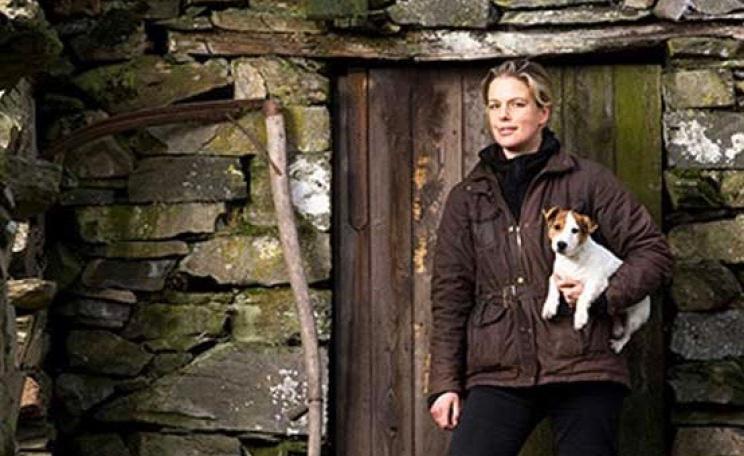We are trying to minimise the dangers as far as we can by having a very experienced expedition team, excellent planning and logistics, using the best equipment and gear available, and having contingency and emergency plans in place...
One of the last remaining pristine areas of the planet - where the wreckage of Ernest Shackleton’s ship Endurance lies undisturbed - is to be explored by a group of scientists in a once-in-a-lifetime expedition next year, with hopes to secure a bid to make it a Marine Protected Area (MPA).
A team of 30 researchers, technicians, and surveyors will be on board S.A Agulhas II when it embarks on the Weddell Sea expedition 2019, exploring one of the harshest and most remote locations in Antarctica and documenting its rich marine life over 45 days through January and February.
The team hopes to locate the wreckage of Endurance, which sank in 1915, and to report back with vital scientific information to help secure the Weddell Sea as an MPA.
Atmospheric warming
Scientists will use Underwater Autonomous Vehicles (AUVs) to survey and sample below the ice shelf for the first time ever, focusing their efforts on studying the rapidly declining Larsen C Ice Shelf.
A launch event for the expedition takes place today (April 10) at the Royal Geographical Society in London and includes talks from members of the research team including Professor Julian Dowdeswell, Director of the Scott Polar Research Institute, and Dr Lucy Woodall, the Principal Scientist at the Nekton Foundation.
Dr John Shears, co-leader of the expedition, will also attend. Dr Shears is a polar geographer and environmental scientist with than 25 years of experience working in both Antarctica and the Arctic, first with the British Antarctic Survey and then with the Scott Polar Research Institute at the University of Cambridge.
He told The Ecologist: “The ice shelves surrounding the Weddell Sea are important because they affect the mass-balance and stability of the Antarctic Ice Sheet, as well as ocean-current circulation.
"They are of particular scientific interest because they are susceptible both to atmospheric warming from above and ocean warming from below.
Rapid retreat
"If ice shelves thin, break up to produce icebergs and retreat as the atmosphere and ocean waters warm, then ice flow from the interior accelerates and more mass is lost, contributing to global sea-level rise."
He added: "The melting at the base of ice shelves and calved icebergs also releases fresh water, which can inhibit the generation of very dense Antarctic Bottom Water. This is one of the major drivers of the thermohaline circulation of the oceans, which provides vital nutrients to major fishery grounds around the world.”
The Weddell Sea measures around 2.8 million square kilometres and was discovered in 1823 by the British explorer James Weddell.
There has been hardly any commercial fishing in the area due to its thick sea ice. However, Dr Shears said: “There is concern that commercial fishing might occur there in the future.
We are trying to minimise the dangers as far as we can by having a very experienced expedition team, excellent planning and logistics, using the best equipment and gear available, and having contingency and emergency plans in place...
"In recent years, the most significant environmental changes taking place in the region have been the thinning rapid retreat of parts of the Larsen Ice Shelf.
Dangerous journey
"The Larsen A and B ice shelves collapsed suddenly in a matter of weeks in 1995 and 2002 respectively, and one of the biggest iceberg calving events ever recorded took place from Larsen C Ice Shelf in July 2017.”
The marine animal communities and ecosystems that exist in the Weddell Sea have adapted to Antarctic living conditions over millions of years, and it is now home to around 14,000 animal species.
Marine biologists have compared the diversity of species found here to that of tropical coral reefs. Dr Shears is expecting to find traces of human activity - despite it being such a pristine and remote area of the planet.
He said scientists on the expedition will be analysing water and seabed sediment samples for micro-plastics carried there by ocean currents from other parts of the world.
The expedition is being funded by the Flotilla Foundation, a charity registered in the Netherlands and set up to fund research into the marine environment. It has been managed independently of any government. Currently this is a one-off expedition, and it is a challenging and dangerous journey.
Scientific results
The SA Agulhas II is a powerful Polar Class 5 research ship, which can break ice more than a metre thick. The captain will use aerial drones and satellite remote sensing to find the easiest channel through the sea ice.
Dr Shears said: “We are trying to minimise the dangers as far as we can by having a very experienced expedition team, excellent planning and logistics, using the best equipment and gear available, and having contingency and emergency plans in place.
"However, we are going to one of the coldest, harshest and most remote places on the planet so we can’t eliminate all the dangers and risks.”
The proposal to designate the Weddell Sea as a Marine Protected Area is an international initiative led by the governments of Germany and South Africa, and is under active discussion by the Antarctic Treaty nations.
This team is working closely with the Department of Environmental Affairs in South Africa, and hopes to ensure the new and important scientific results from the expedition can be incorporated as rapidly as possible into the MPA proposal.
Dr Shears said he was personally very excited about the new exploration. “I’m looking forward to seeing the amazing seascape of the frozen Weddell Sea, and the wildlife we will encounter, including emperor penguins, Weddell seals and killer whales,” he added.
This Author
Laura Briggs is a regular contributor to The Ecologist and can be found tweeting at @WordsbyBriggs.




